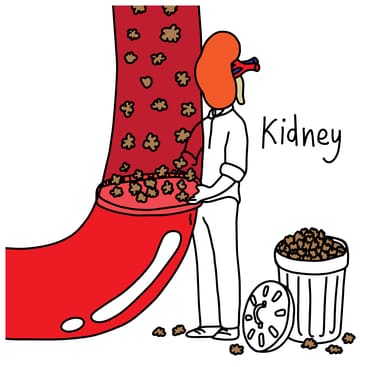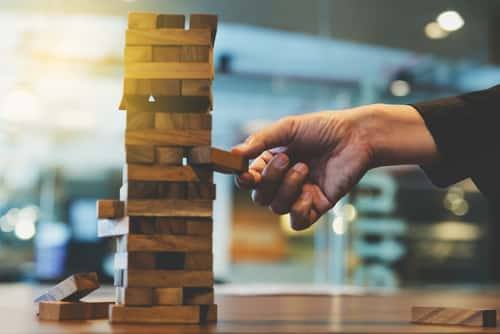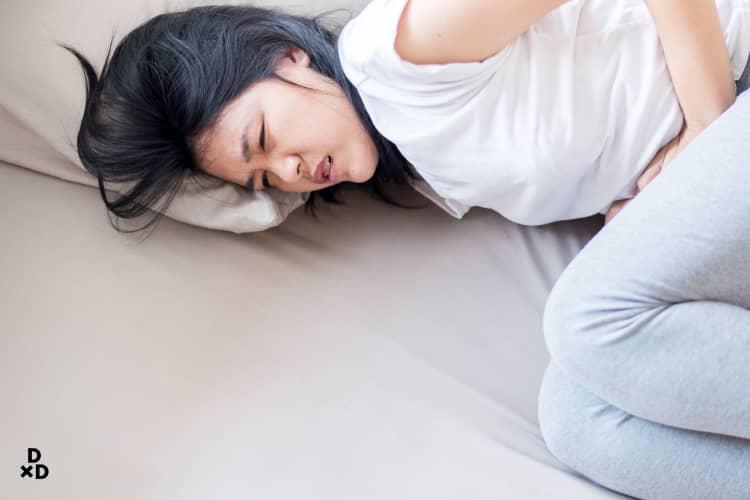Getting pregnant can sometimes be pretty tricky. If you are struggling to conceive, don't worry, you're not alone.
Approximately 15% of couples in Singapore cannot get pregnant successfully within 12 months of trying to have a child, while roughly 50% of these couples have discovered that the cause may be an underlying medical disorder.
This is why so many are seeking alternatives to some of the medical solutions out there.
Traditional Chinese Medicine (TCM) treatments may just improve the chances of pregnancy. She’s got loads of clinical experience under her belt and is passionate about TCM fertility treatments.
Physician Lin held a Human Session to answer some of the burning questions regarding TCM infertility treatments, and here's what she had to say.
Herbal medication and acupuncture are the most common infertility treatments

When it comes to infertility, herbal medication and acupuncture are the two most commonly administered treatments.
In TCM, herbal prescriptions are customised according to an individual’s body constitution.
Several herbs are combined to nourish and balance the body for better results.
On the other hand, acupuncture treatments involve inserting needles at specific acupoints along the meridians which regulate the flow of qi and blood.
Physicians will then monitor your progress and modify the treatment according to how your body responds to the prescriptions or acupuncture.
TCM isn’t just an infertility treatment, it’s a holistic measure
The nature of TCM is a holistic one, which encourages a fully-functional and well-kept body.
This is why treatments don’t necessarily focus on a particular fertility-related problem.
Instead, they aim to improve all systems of your body and mind.
To quote Physician Lin: "If you sleep well, have good appetite and digestion, feel energetic and have a healthy sense of self, then all bodily systems should work efficiently, including the reproductive components".
TCM diets can help boost fertility

Physician Lin explained to a reader that TCM is essentially a lifestyle changing process, and having a diet that is in sync with the treatment should definitely increase its efficacy.
TCM fertility treatments usually produce results in 3 to 6 months
After a full assessment is made and treatments begin, a time frame of between 3 to 6 months is usually needed to see improvement of the body constitution, and to prepare the body for pregnancy.
Of course, the effects depend on a person’s unique body attributes. Some may take a shorter time to conceive, while others require a longer period of time.
Stress levels, diet, and lifestyle can also play a part in how well you respond to acupuncture and herbal medication.
Treatments are most effective for adults aged 21-35
TCM fertility treatment success is affected by your age. (Conventional clinical practices determine success based on age as well so you can’t really escape it, sorry!)
Treatments are most effective for adults aged 21-35 (perhaps why your elders may pressure you to get married as soon as possible).
Men, don’t think you’re safe either, since fertility and sexual performance in males also declines with age!
Costs of TCM fertility treatment
Depending on the treatment plan you’re going for, TCM fertility treatments vary greatly in costs on an individual basis.
Usually, treatments involve herbal medication, acupuncture or both, where the duration and intensity of each session differs from person to person.
The kidney is important when it comes to fertility

In Chinese medicine, the kidney plays a vital role in facilitating reproduction. The kidney’s qi is a main focus for TCM practitioners since it is easier to conceive and give birth when this qi is at its optimal level. This happens to be between the ages of 21-28 (surprise surprise).
As one ages, the kidney's qi begins to decline as well.
In TCM, the spleen is another crucial organ responsible for maintaining the smooth flow of qi and blood within the body.
TCM treatments can increase kidney qi to boost fertility. However, age is a limiting factor and it can affect the chances of success.
If you’ve been trying to conceive for 6 months to a year, Physician Lin suggests that it’s probably time to seek medical evaluation before your kidney qi really slides downhill.
Weak organs can lead to infertility
Physician Lin explains that kidney and spleen deficiencies can result in reduced nourishment to the reproductive organs.
This can affect conception (in not so wonderful ways). Weak body constitution, poor diet and unhealthy lifestyles are common causes of deficient kidney and spleen syndromes.
Liver qi stagnation could also lead to infertility. The effects of a fast-paced life, demanding job, lack of work-life balance and mental and physical stress on a woman's body can impact fertility, affecting qi and hindering the smooth circulation of blood to the entire body (including reproductive organs!)
Acupuncture for fertility really does work
Contrary to what some people may believe, acupuncture is in fact a potentially great solution for fertility.
The process helps to tonify where there is deficiency, drain where there is excess, and promote free flow where things are stuck.
At the same time, acupuncture can help to normalise hormones and also increase blood flow to the uterus.
In fact, studies have proven that acupuncture can significantly boost the chances of pregnancy in women undergoing IVF.
Consider combining TCM treatments with western medicine
Why not go for the best of both worlds?
Physician Lin encourages the combination of TCM treatments with western medicine.
Many patients receive TCM treatments while undergoing IVF or IUI procedures. TCM and western medicine can work hand-in-hand to increase the chances of patients getting pregnant.
How risky are TCM treatments?

It depends on a few things. For patients undergoing acupuncture, some slight bruising or bleeding might occur (although this isn't anything to worry too much about).
In rare cases, patients could feel nausea, weakness or dizziness during their first session. This usually boils down to anxiety, poor health or hunger. It's best to inform your physician if you feel uneasy.
Traditional Chinese Medicine herbal prescriptions might lead to thirst or discomfort in bowel movement, so let your physician know in case you need to adjust your prescription.
Learn more about acupuncture from a TCM physician here.
If you and your partner are having a little trouble conceiving, don't despair! We live in a time where there is an assortment of treatment options. TCM might very well be the answer that you’ve been looking for all along!
Ever wanted to ask a health question to a specific renowned specialist in Singapore? Human Sessions are when these expert doctors answer all your questions, for free!
You can Ask A Doctor right away, or view the complete list of Human Sessions here.










